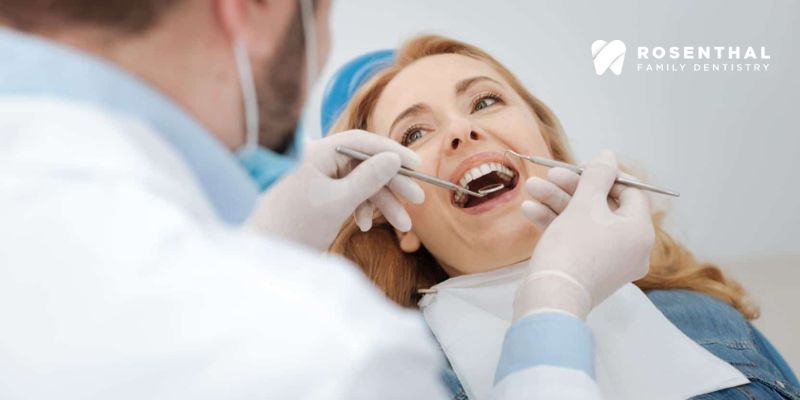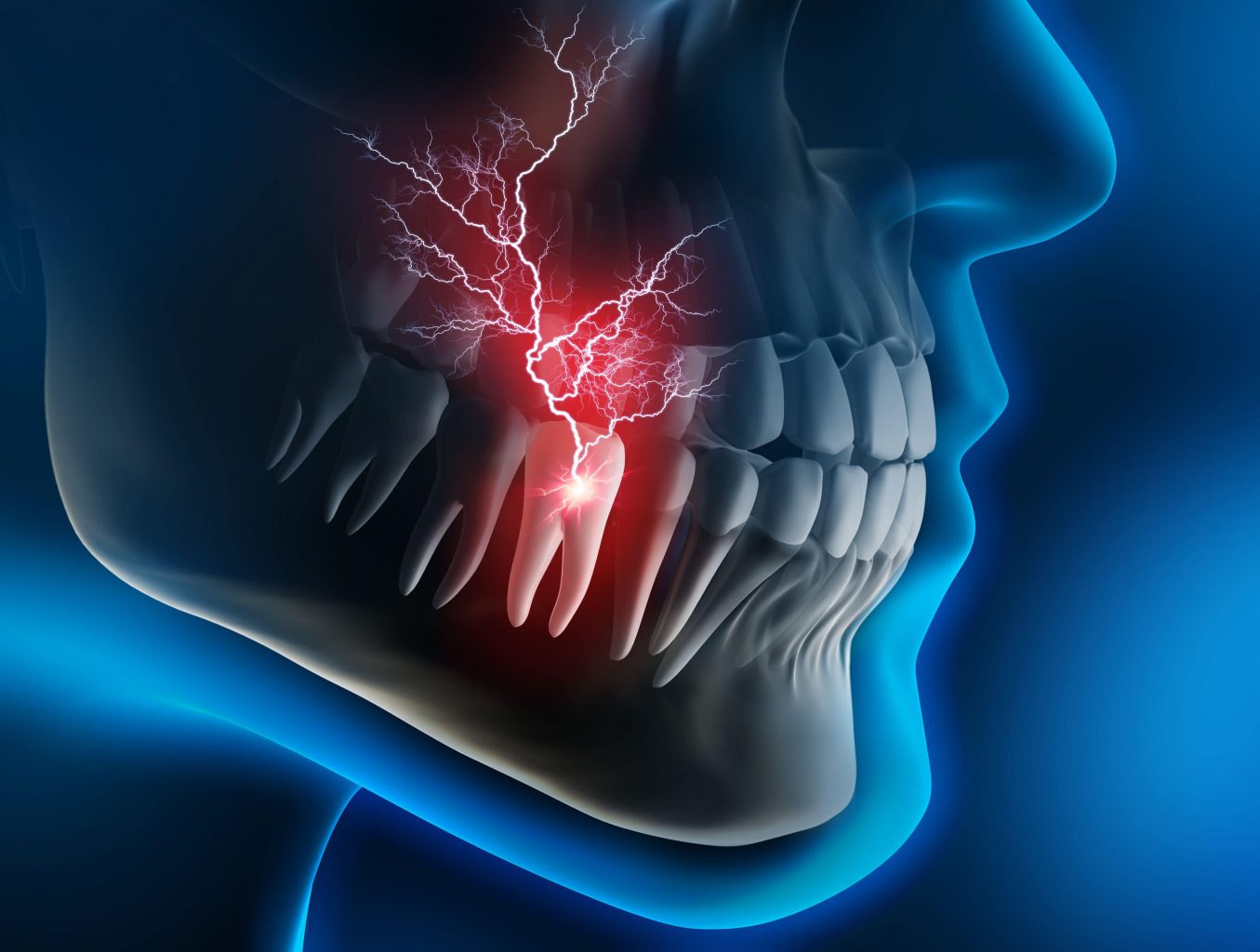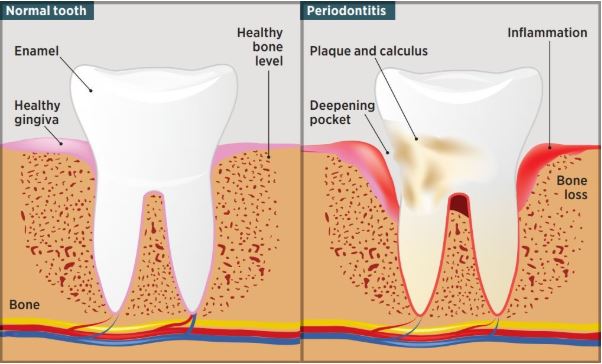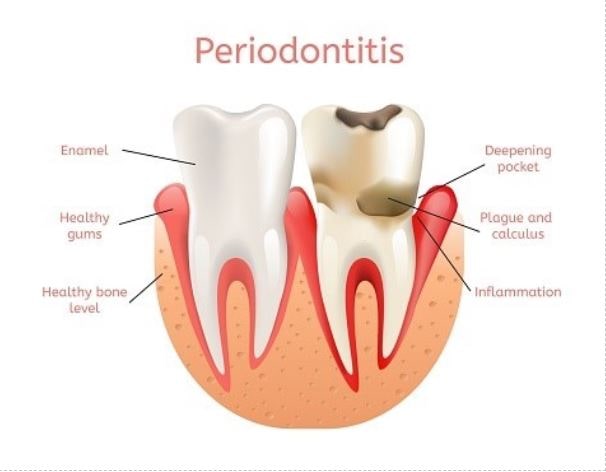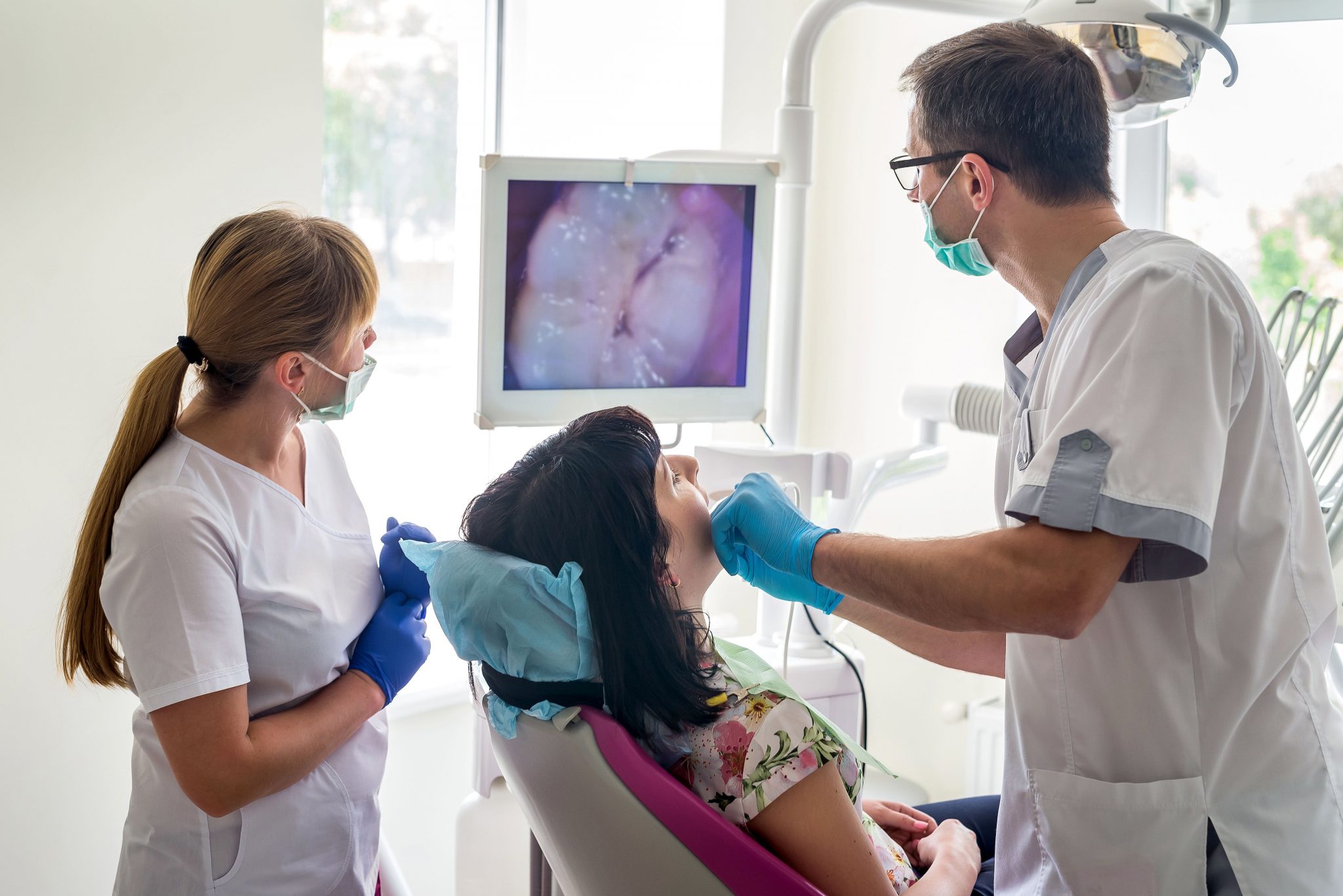Regular dental check-ups are essential for maintaining good oral health and preventing dental problems. However, for many people, the thought of visiting the dentist can be intimidating. Understanding what happens during a dental exam and cleaning can help alleviate anxiety and ensure a smooth experience. In this article, we will walk you through the process step by step, from the moment you arrive at the dental office to the completion of your appointment.
What to Expect During a Dental Exam and Cleaning
1. Checking in
Upon arrival at the dental office, you will be warmly greeted by a receptionist or dental assistant who will guide you through the check-in process. They will ask you to complete any necessary paperwork, including updating your medical history and insurance details.
Ensuring accurate information is provided allows your dentist to tailor their approach to your specific needs effectively. This initial step not only facilitates a smooth and efficient dental visit but also helps you feel more comfortable and prepared for the examination and cleaning ahead. The welcoming atmosphere and attention to detail during check-in set a positive tone for your entire dental experience.
2. Medical History Review

Before your examination begins, your dentist or dental hygienist will carefully review your medical history. They will inquire about any current medications, allergies, or recent changes in your oral health. This comprehensive review ensures that your dental team has a complete understanding of your overall health status and any factors that may impact your dental treatment.
By sharing pertinent medical information, you enable your dentist to provide personalized care tailored to your specific needs. This thorough assessment sets the stage for a successful dental visit, allowing your dental team to address any potential concerns and ensure your safety and comfort throughout the appointment.
3. Visual Examination
The dental exam typically begins with a visual inspection of your mouth, teeth, and gums. Using a small mirror and sometimes a bright light, your dentist carefully examines each tooth’s surface, checking for signs of decay, cracks, or other damage. They also assess the condition of your gums, looking for redness, swelling, or signs of infection.
Additionally, your dentist will examine your tongue, cheeks, palate, and throat for any abnormalities or signs of oral cancer. This thorough examination allows your dentist to identify any potential issues early on and develop a personalized treatment plan to address them, ensuring optimal oral health for the future.
4. X-Rays
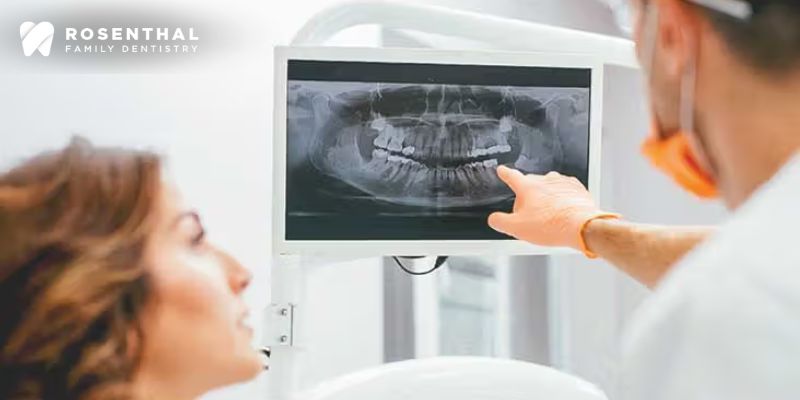
In some cases, your dentist may recommend taking X-rays of your teeth and jaw. X-rays are valuable diagnostic tools that provide detailed images of the internal structures of your mouth, including areas that are not visible during a visual examination. These images can reveal hidden problems such as cavities between teeth, impacted wisdom teeth, or bone loss caused by gum disease.
While some individuals may express concerns about radiation exposure from X-rays, it is important to note that modern dental X-ray equipment emits very low doses of radiation, making it safe for routine use. The information obtained from X-rays enables your dentist to make accurate diagnoses and develop appropriate treatment plans tailored to your specific needs.
5. Periodontal Assessment
Following the visual examination, your dentist or dental hygienist will conduct a periodontal assessment to evaluate the health of your gums. Using a small, specialized probe, they will measure the depth of the pockets between your gums and teeth. Deeper pockets may indicate the presence of gum disease, also known as periodontitis. Additionally, they will assess the firmness and appearance of your gums, looking for signs of inflammation, bleeding, or recession.
This thorough assessment is crucial for detecting early signs of gum disease and preventing its progression. If left untreated, gum disease can lead to serious complications, including tooth loss and systemic health issues. By identifying gum disease in its early stages, your dentist can recommend appropriate treatment options to help restore gum health and prevent further damage to the supporting structures of your teeth.
6. Professional Cleaning
Following the examination, a dental hygienist meticulously removes plaque and tartar buildup from your teeth and along the gumline. Using specialized tools like a scaler and polisher, they gently scrape away deposits and polish tooth surfaces to enhance appearance and reduce the risk of decay. Thorough flossing ensures all surfaces are clean, while a fluoride rinse strengthens enamel. These steps, performed regularly, are crucial for maintaining optimal oral health and preventing dental issues.
7. Fluoride Treatment
After cleaning, your dentist may recommend a fluoride treatment to strengthen tooth enamel and prevent cavities. Fluoride, a mineral that helps remineralize weakened enamel, is applied directly to your teeth in gel, foam, or varnish form. Left on for a few minutes, it enhances enamel’s resistance to decay. This quick and painless procedure provides added protection against cavities, especially for those at higher risk. Regular fluoride treatments, along with proper oral hygiene, contribute to long-term dental health.
8. Oral Hygiene Instructions
Before you leave the dental office, your dentist or dental hygienist will provide personalized oral hygiene instructions to help you maintain good oral health between visits. They may demonstrate proper brushing and flossing techniques and recommend oral care products suited to your specific needs.
9. Follow-Up Recommendations
Depending on the findings of your dental exam, your dentist may recommend follow-up treatments or procedures to address any issues identified. This could include fillings for cavities, periodontal therapy for gum disease, or orthodontic treatment for misaligned teeth. It is essential to follow through with any recommended treatments to prevent oral health problems from worsening over time.
10. Scheduling Your Next Appointment
Before you leave the dental office, be sure to schedule your next regular check-up and cleaning appointment. Regular dental visits every six months are crucial for maintaining optimal oral health and catching any potential problems early.
Conclusion
In conclusion, a dental exam and cleaning are essential components of preventive dental care. By understanding what to expect during your appointment, you can feel more confident and relaxed about visiting the dentist. Remember to prioritize your oral health by scheduling regular check-ups and following your dentist’s recommendations for at-home care. Your smile will thank you for it!

